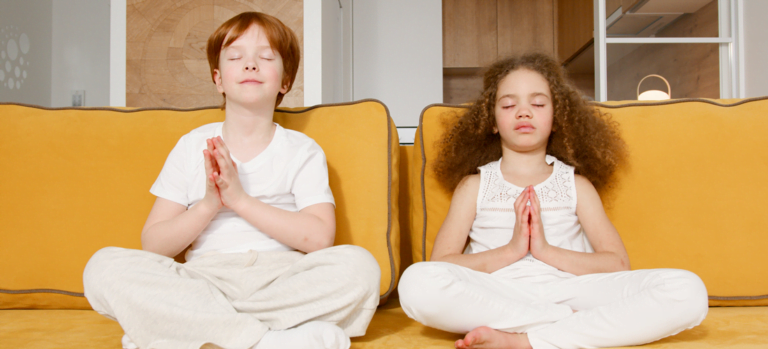Solitude is often overlooked as a valuable tool for personal growth and the enhancement of social skills, especially in our increasingly interconnected world. Often mistaken for loneliness, solitude is a state of being alone without feeling lonely and it holds the potential to be harnessed for self-improvement and personal development. This guide delves into the transformative power of solitude, outlining how moments of seclusion can lead to profound self-discovery, creativity, and emotional balance. More importantly, it underlines the surprising connection between solitude and social skills.
It’s in the quietude of solitude that we get to know ourselves better, allowing us to relate to others in more meaningful ways. Through this guide, you will learn to appreciate solitude, not as a state of isolation, but as a stepping stone towards improved social interactions and enriched personal relationships.
The Role of Self-Reflection
Solitude provides us with the ideal environment for deep self-reflection. Uninterrupted by the cacophony of our bustling surroundings, solitude allows us to pause, introspect, and contemplate our thoughts, emotions, and behaviors. These moments of introspection are significant because they lead to self-awareness, an indispensable component of social skills.
Self-awareness, the conscious knowledge of our own character and feelings, is the cornerstone of empathetic and effective social interaction. As we grow more self-aware, we become more adept at reading our emotional responses and understanding how we are perceived by others.
This increased understanding can significantly enhance our social interactions, allowing us to communicate more effectively, manage conflicts better, and develop deeper, more meaningful relationships. Thus, by providing the space for self-reflection, solitude indirectly cultivates our social skills, underlining its importance in personal and social development.
Practical Tips for Effective Self-Reflection During Solitude
To harness the power of solitude for self-reflection and social skill development, consider the following tips:
- Create a tranquil environment: A calming atmosphere can bolster your self-reflection process. This could be a quiet room, a peaceful outdoor setting, or any space where you feel comfortable and undisturbed.
- Adopt a regular routine: Consistency is key to forming habits. Allocate a specific time each day, or each week, for solitude and self-reflection.
- Journal your thoughts: Writing about your thoughts, feelings, and experiences can provide valuable insights into your self-perception and behavior. It also serves as a tangible record that you can refer back to.
- Ask yourself reflective questions: Questions like “Why did I react in the way I did?” or “What could I do differently next time?” can stimulate introspection and foster self-awareness.
- Practice mindfulness: Techniques such as meditation or focused breathing can help quiet the mind, enabling deeper self-reflection.
- Suspend judgment: Be open and accepting of your thoughts and emotions, even if they’re uncomfortable. Self-reflection is not about self-criticism, but understanding and acceptance.
- Seek feedback from others: Although solitude is about self-reflection, occasionally seeking feedback from others can provide a different perspective and promote self-growth.
Building Confidence Through Solitude
Solitude can play a significant role in building self-confidence by enabling introspection and self-discovery. When you spend time alone, you get the opportunity to understand your strengths, weaknesses, passions, and fears without the influence of others. This self-awareness can bolster your self-esteem as you recognize your unique capabilities and accept your imperfections.
Furthermore, solitude provides a space for you to set personal goals and track your progress towards them. As you work independently towards these objectives and witness your improvement, your confidence in your abilities can grow. This self-reliance developed in solitude can then translate into social situations, improving your interpersonal skills and interactions.
Finally, solitude can help you cultivate resilience. When alone, you confront your vulnerabilities and learn to manage them. This experience can strengthen your emotional resilience, bolstering your confidence to face challenging situations, both in your personal space and in social scenarios. Thus, solitude can be a powerful tool in building self-confidence, subsequently enhancing your social skills.
Activities to Build Confidence in Solitude
- Meditation: Practicing meditation during solitude can be a powerful means of self-discovery and confidence-building. As you focus on your thoughts and feelings in a non-judgmental way, you learn to trust your inner voice and build self-assuredness.
- Journaling: Writing down your thoughts, feelings, and experiences in a journal allows you to reflect on your actions and decisions. This can help you understand your motivations and behavior, boosting your self-awareness and subsequently, your self-confidence.
- Learning a new skill: The quiet of solitude provides the perfect environment for learning a new skill. Whether it’s a foreign language, a musical instrument, or coding, mastering a skill helps build self-efficacy, thereby improving your confidence.
- Physical exercise: Engaging in physical exercise during solitude not only promotes physical health but also improves mental well-being. The sense of accomplishment you feel after a workout can significantly enhance your self-esteem.
- Reading: Immersing yourself in the world of books can help you gain knowledge and perspectives, fostering a sense of self-assurance. Whether it’s self-help, philosophy, or fiction, reading widens your understanding and builds confidence in your intellectual capabilities.
Developing Communication Skills
Solitude serves as a unique platform for practicing and refining communication skills. When alone, one can engage in activities like reading and writing that directly enhance these skills. Reading broadens vocabulary, teaches sentence structure, and imparts new ideas and perspectives, all of which contribute to more effective articulation of thoughts. Writing, especially writing in a journal, can help one to organize thoughts and express them clearly.
Solitude can also be used to practice public speaking or conversational skills. For example, one might rehearse a presentation or a difficult conversation in private before the actual event. This practice can help to reduce anxiety, refine your message, and promote a more confident and skilled communication style when interacting with others.
Solo Communication Exercises and Techniques
- Monologues and Dialogues: Practicing monologues can significantly improve your articulation and presentation skills. You can also create hypothetical dialogues and play both sides, which not only enhances your speaking skills but also helps develop empathy and understanding by putting yourself in another’s shoes.
- Voice Recording: Record yourself while speaking to listen to your voice, pronunciation, pitch, and clarity. There is no better way to recognize and correct any speech defects or awkward habits.
- Mirror Practice: Talking to yourself in front of a mirror can be an effective way to improve your body language. It helps you understand your facial expressions and gestures, and how they might be perceived by others.
- Listening Exercises: Enhancing listening skills is crucial for effective communication. Listen to podcasts, lectures, or speeches in solitude. Actively focus on understanding the speaker’s message, their tone, and the pace of their speech.
- Writing Practice: Spend time writing essays, letters, or journal entries. It not only helps in articulating thoughts but also improves vocabulary and grammar.
- Presentation Rehearsals: If you have a presentation coming up, rehearsing in solitude can be very effective. It allows you to adjust your content, get comfortable with the material, and manage timing.
- Meditation: Though not directly a communication exercise, meditation can significantly improve your focus and clarity, enabling more effective communication.
Improved communication can fundamentally transform social interactions. For starters, clearer articulation and better presentation skills can make an individual more approachable and engaging to others. Being able to effectively convey thoughts and ideas promotes understanding and fosters positive relationships.
Additionally, an improved understanding of body language equips an individual with the ability to read non-verbal cues, which can be crucial in social scenarios. This not only helps in appropriately responding to others, but also in avoiding potential misunderstandings. Enhanced listening skills, on the other hand, demonstrate respect and interest towards the speaker, which can strengthen social bonds.
The ability to express oneself through writing can be an essential avenue for sharing experiences, feelings, or ideas, especially in the digital age. Lastly, improved focus and clarity through meditation can help an individual be more present during interactions, thereby fostering deeper and more meaningful connections. Clearly, harnessing solitude to improve communication skills can have a profound impact on social interactions.
Emotional Regulation and Empathy
Emotional regulation is another area where solitude plays a significant role. When one is alone, it offers the space and tranquility to introspect and process emotions without external influences. It enables individuals to better understand their own emotional responses, identify what triggers certain emotions, and how to handle them in the future.
The solitude can be instrumental in fostering self-awareness, inner peace, and emotional stability. By dissecting their emotional reactions, individuals can learn to respond rather than react to situations, leading to more balanced social interactions. Through understanding and managing one’s own emotions, an individual is in a better position to empathize with others, enhancing their social skills and relationships. Therefore, the interplay between solitude and emotional regulation is pivotal for personal growth and social skill development.
Strategies for Managing Emotions in Solitude
Managing emotions during solitude is a skill that requires conscious effort and practice. Here are some strategies that may be beneficial:
- Mindfulness Meditation: Mindfulness involves grounding oneself in the present moment and observing thoughts and feelings without judgment. During solitude, one can practice mindfulness meditation to manage emotions.
- Journaling: Writing about thoughts and feelings can serve as a powerful tool for emotional regulation. It provides a safe space to express and analyze emotions, ultimately leading to a better understanding of oneself.
- Physical Exercise: Engaging in physical activities can be an effective way to release pent up emotions and stress. Even a short walk or a few minutes of yoga can help clear the mind and promote emotional well-being.
- Creative Expression: Activities such as painting, playing an instrument, or cooking can provide an outlet for emotions and contribute to emotional balance.
- Self-talk: Engaging in positive self-talk can help to reframe negative thoughts and promote a healthier emotional state.
The Interplay of Self-awareness and Empathy
Increased self-awareness, often cultivated during periods of solitude, can significantly foster empathy for others. When we understand our own emotions, behaviors, and motivations, we’re more equipped to perceive and comprehend these aspects in others. This understanding forms the basis of empathy – the ability to step into another’s shoes, to understand their feelings and perspectives, and to use that understanding to guide our actions.
For instance, self-awareness can help us recognize and label our feelings of frustration or anger. With this understanding, we are better positioned to comprehend when another individual might be experiencing these emotions. We can empathize with their situation because we’ve experienced and recognized it within ourselves. Such empathy plays a crucial role in building deeper and more meaningful social connections. Hence, solitude, by fostering self-awareness, indirectly aids in the development of our social skills.
Pursuing Personal Interests and Hobbies
Personal passions and hobbies are often discovered and nurtured in solitude. This is a time when individuals can deeply engage with their interests without the continuous disturbance of external stimulus. Uninterrupted hours of solitude lend themselves to concentrated practice, study, and exploration of new ideas.
This space for undistracted focus can result in substantial skill development, deepening of knowledge, and a stronger connection to personal interests. The inward journey during solitude can lead to the discovery of latent talents, helping individuals identify their unique abilities. In turn, this self-understanding plays a significant role in enhancing self-confidence, promoting authenticity in social interactions, and, ultimately, improving social skills.
Solitude, while seemingly a state of disconnect, can lay a strong foundation for meaningful social connections through the pursuit of personal passions.
Enriching Social Interactions Through Personal Interests
Hobbies and interests cultivated in solitude often become a medium for enhancing our social interactions. They act as conversation starters, creating common ground with others who share these interests, or inspiring curiosity in those who don’t. Discussing personal passions can add depth and authenticity to our conversations, enabling us to express ourselves more fully and sincerely.
The confidence gained from nurturing personal skills and interests can radiate into our social interactions. Being recognized for our unique abilities and knowledge can boost our self-esteem, making us more comfortable in social settings. This comfort level makes us more approachable and allows us to connect more easily with others.
In this way, the solitary act of pursuing personal interests and hobbies can significantly enrich our social interactions, highlighting that even in solitude, we are subconsciously preparing ourselves for social connection.
Striking a Balance
Striking a balance between embracing solitude and engaging in social activities is essential for all-round personal growth. While solitude provides an opportunity to turn our focus inward, understand ourselves better, and hone our individual skills, social engagement allows us to put these personal insights to use, facilitating the development of effective communication, empathy, and cooperation.
It is essential to maintain a healthy equilibrium between these two aspects. By harnessing the power of solitude for self-discovery and personal development, and then applying this newfound understanding in our social interactions, we nurture a more genuine and confident self. This balanced approach not only enhances our social skills but also contributes to a more fulfilling and content life.
Incorporating Social Interactions into a Solitude-Enriched Routine
Integrating social interactions into a routine that heavily leans on solitude might seem difficult, but it can be accomplished with mindful planning. Here are a few strategies that can help bridge the gap.
- Set specific interaction goals: Just as you might set aside time for solitude, it’s beneficial to schedule regular social interactions. These could include catching up with friends, attending social gatherings, or participating in group activities related to your interests.
- Leverage technology: Utilize digital platforms to maintain social connections. Online forums, social media, and video calls are great tools for staying connected, especially when physical interactions are not possible.
- Engage in social hobbies: Activities like team sports, book clubs, or community service not only create opportunities for interaction, they also allow you to bond with others over shared interests.
- Practice active listening: When engaging with others, strive to be present in the moment. Active listening skills developed in solitude can be invaluable in social contexts, fostering understanding and mutual respect.
- Apply learned skills: Use the personal insights and skills gained during self-reflective solitude in your social interactions. This can help in understanding others’ perspectives, improving empathy and enhancing your overall communication.
Potential Pitfalls of Excessive Isolation and How to Avoid Them
While solitude can be a powerful vehicle for personal growth and self-reflection, excessive isolation has potential pitfalls. It might lead to feelings of loneliness, depression or anxiety, and can negatively impact your social skills.
To avoid these pitfalls, balance is key. Here are some strategies to ensure solitude and social interactions coexist in a healthy manner:
- Balance solitude with social interactions: Ensure you’re not spending too much time in isolation at the expense of social connections. Allocate specific times for solitude, but also make room for regular social activities.
- Maintain regular communication with others: Even in periods of deliberate solitude, it’s important to keep in touch with friends or family. Regular check-ins can alleviate feelings of loneliness, and provide opportunities to exercise your social skills.
- Engage in group activities that promote solitude: Group meditation, yoga classes, or hiking clubs can offer a balance— they promote introspection while providing an opportunity for social interaction.
- Seek professional help if necessary: If feelings of anxiety or depression persist, don’t hesitate to seek professional help. Therapists and counselors can provide support and help to navigate through these emotions.
Final Thoughts on Solitude and Social Skills
In the journey of personal growth and social skill development, solitude can serve as an invaluable ally. It creates a space for introspection that allows us to understand our emotions, reactions, and tendencies better. In turn, this self-awareness can significantly enhance our interactions with others, lending depth to our relationships and sharpening our empathy and listening skills.
Solitude should not be viewed as an enemy of social skills, but rather as a powerful tool that can help us nurture and refine those skills. By embracing solitude and using it wisely, we can thrive in social situations and foster more meaningful relationships.
Embracing solitude is not about alienation, but a journey of self-discovery, personal growth, and ultimately, better social interactions. It’s in these quiet moments that we gain a deeper understanding of our own emotions, desires, and responses. This understanding refines our perspective towards others, making us more empathetic listeners and thoughtful communicators.
The solitude that once seemed daunting becomes a powerful ally in shaping your identity, fostering resilience, and enhancing your social skills. So, don’t shy away from solitude. Embrace it, explore it, and use it as a stepping stone to building more profound and rewarding social relationships.











